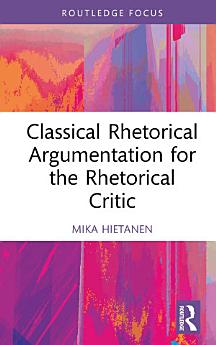Classical Rhetorical Argumentation for the Rhetorical Critic
About this ebook
Adopting a Scandinavian rhetorical perspective, this book argues that classical rhetoric offers enduring tools for both the analysis and the construction of persuasive argumentation. By bridging theory and practice, it demonstrates how classical rhetoric remains highly relevant, while also naturally integrating with analyses that focus on classical concepts such as ethos, pathos, or style – whether through neo‐Aristotelian methods or contemporary approaches rooted in the classical rhetorical tradition. Key concepts are explored in dedicated chapters: the ‘art’ of logos‐based argumentation is reassessed; enthymeme and epicheireme structures are examined; and topoi and staseis are discussed in relation to their later developments. A chapter on the centenary of rhetorical criticism traces its evolution from Herbert Wichelns (1925) to today, proposing a new template for the rhetorical critic.
This concise yet comprehensive book will interest intermediate and advanced students, as well as scholars of rhetoric, argumentation, persuasion, speech and writing studies, and communication studies.
About the author
Mika Hietanen is a Senior Lecturer in Rhetoric at Lund University, Sweden. He is a rhetorician, an argumentation scholar, an exegete, and a pedagogue with a focus on both authentic and literary argumentation in political, religious, and educational contexts. His interests include a variety of both classical and modern rhetorical methods and historical and contemporary persuasive and argumentative techniques, as well as hate speech, argument literacy, and rhetorical citizenship.





